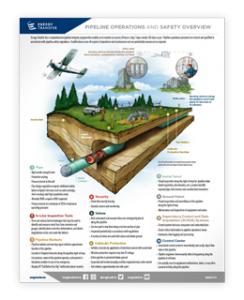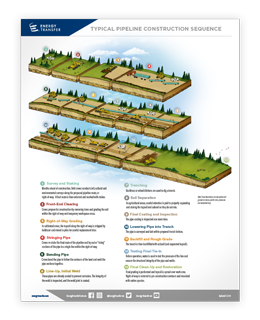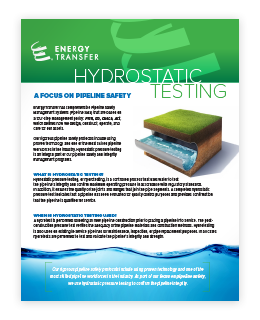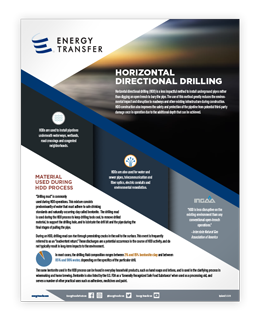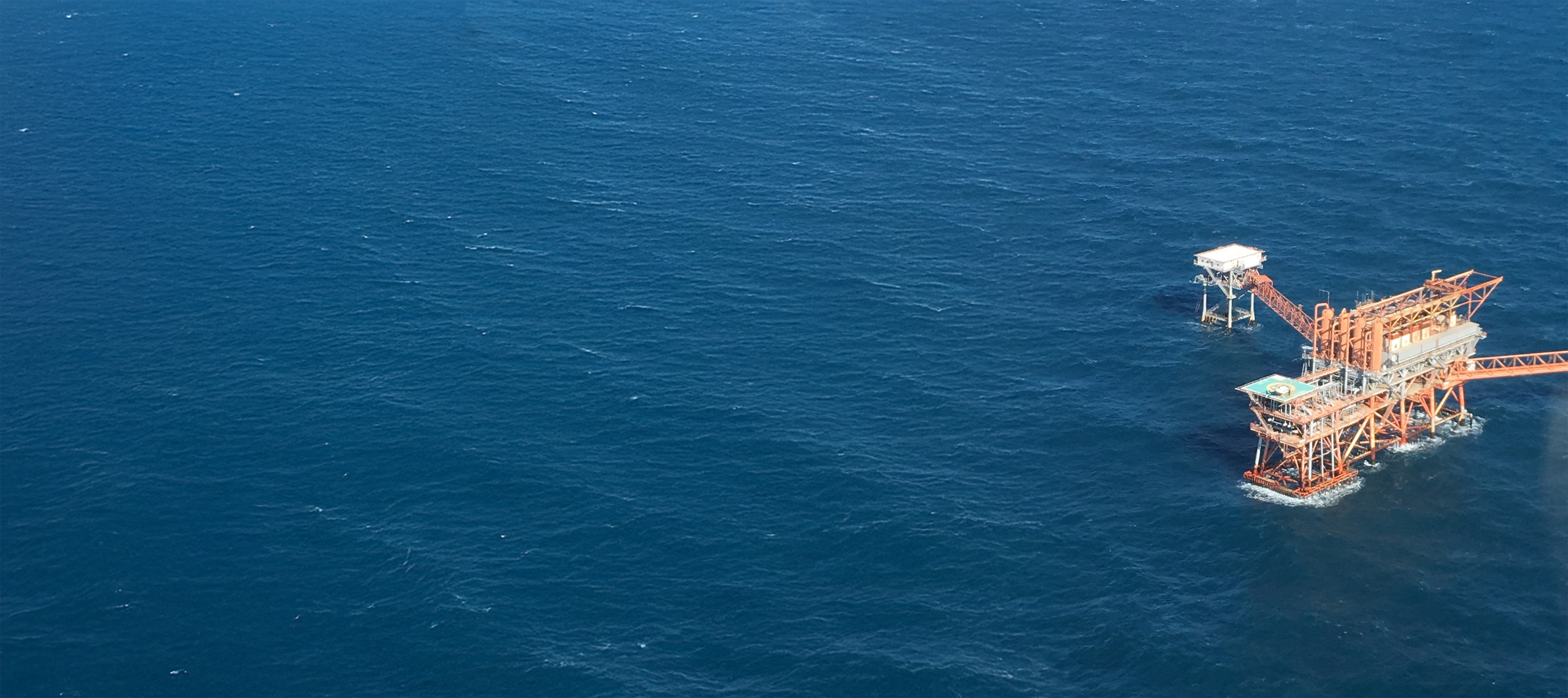
SAFETY & REGULATORY
Safety First
At Energy Transfer, safety comes first in everything we do. We believe that maintaining the highest safety standards is key to delivering excellence across our operations. We have long-standing commitments to the safety of our people, our communities, our environment, and our assets. We do this because it makes good business sense, but more importantly, it is the right thing to do.

Commitment to Safe Construction
It is our priority to safely construct and operate the pipeline in ways that meet or exceed all state and federal safety and environmental regulations. For example, we non-destructively test 100% of the mainline girth welds by x-ray or ultrasound, while it is only required for 10% of welds to be tested. The pipeline will be tested with water at 1-1.5 times higher-than-normal pressure and regulation devices will be installed to prevent pressure from exceeding safe limits.

Your Community is Our Community
Our goal is to provide safe and reliable service to the communities we cross and to the customers we serve. Energy Transfer has a comprehensive pipeline integrity program which enables real-time monitoring of our assets 24 hours a day, 7 days a week, 365 days a year. This includes a supervisory control and data acquisition computer system, in-line inspection tools, aerial patrol, ground patrol, and remotely actuated valves, to name a few.

Reliable Energy Infrastructure
Pipelines are the most environmentally friendly, efficient and reliable mode of transporting energy products. Studies by the U.S. Department of Transportation show that pipelines surpass both rail and truck in overall safety. From fueling our vehicles and heating our homes, to providing the raw materials that make thousands of items we use every day, pipelines connect us to the energy we rely on.
REGULATORY
The U.S. Maritime Administration (MARAD) and U.S. Coast Guard are leading the comprehensive, environmental review of this project. Reviews have been done by more than a dozen federal governmental agencies, including the Army Corps of Engineers, U.S. Department of Transportation and Environmental Protection Agency, as well as reviews and approvals by the States of Texas and Louisiana.
We have taken steps to meet federal requirements and conduct extensive safety analysis during the preliminary project assessments. These steps include conducting geophysical and geotechnical analysis, pipeline integrity surveys, air quality modeling, sound surveys and others. We are committed to operating our assets safely and responsibly to ensure the protection of our assets, people, environment and surrounding communities.
REGULATORY AUTHORITIES
The Blue Marlin Offshore Port will be regulated by several federal and state agencies including:
Louisiana Office of State Lands
U.S. Department of Transportation
U.S. Maritime Administration (MARAD)
U.S. Environmental Protection Agency (EPA)
U.S. Fish and Wildlife Service
U.S. Coast Guard (USCG)
U.S. Army Corps of Engineers (USACE)
Pipeline and Hazardous Materials Safety Administration (PHMSA)
Bureau of Ocean Energy Management
National Marine Fisheries Service
Texas General Land Office
Railroad Commission of Texas
Louisiana Department of Natural Resources
